Protect Medford
In its final days in office, the Biden Administration approved a 30,000-square-foot casino on 2.4 acres in the heart of Medford, Oregon. This allowed the Coquille Indian Tribe to bypass the same process that all other Tribes in Oregon must follow, which is a violation of the Indian Gaming Regulatory Act (IGRA).
The Coquille Indian Tribe’s reservation is 165 miles away on the Oregon Coast, and they have no ancestral ties to the lands in Medford. This casino does not require a compact with the State or any commitment for the Coquille to give back to the Medford community.
The Coquille casino is Oregon’s first off-reservation and urban casino, opening the door to the proliferation of gaming in every city and town without state and local input or oversight. It will hurt the local economy and take business and jobs away from homegrown companies. This is not the kind of economic development that is good for Medford or Oregon.
During President Trump’s first term, he overturned President Obama’s approval of the Coquille Indian Tribe’s application for an off-reservation casino because it violated the IGRA. Biden’s last-minute decision to approve the casino flies in the face of long-standing opposition from business, community, Tribal, and bipartisan elected leaders, such as Congressman Cliff Bentz and Senators Ron Wyden and Jeff Merkley.
President Trump was right the first time. And he can be right again.
Reversing this decision will restore fairness for all Tribes, give the City of Medford a voice in the project, and protect the Rogue Valley from detrimental economic and social harms.
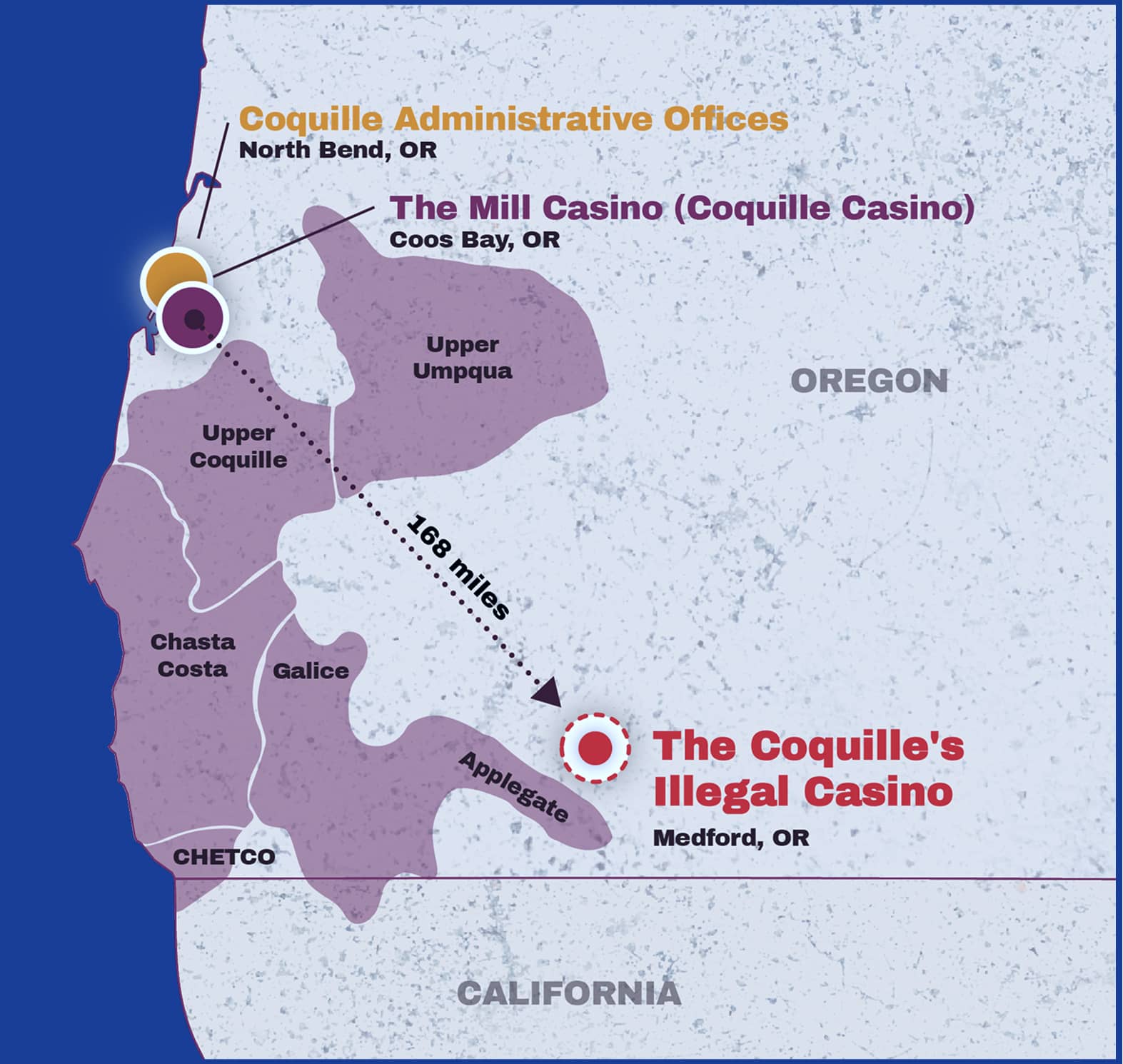
Rogue Reality: Coquille’s Casino is Bad for Medford
A FEDERAL OVERSTEP
UNFAIR ADVANTAGE
NO VOICE FROM MEDFORD
MAKES SOCIAL ISSUES WORSE
MEDFORD SHOULD DECIDE
PROLIFERATION OF GAMING
HURTS LOCAL ECONOMY
Built on False History
When it comes to Indian gaming, Tribes must follow the IGRA, which generally allows casinos only on lands held in trust before 1988. The only exceptions are if the casino is located on the Tribe’s initial reservation or on lands restored through federal recognition, as determined by Congress in each Tribe’s specific restoration act. Neither exception applies to the Coquille.
The Coquille already operates a casino on its ancestral homelands and reservation under the Coquille Restoration Act (CRA), passed in 1984. The CRA lists Jackson County and four other counties as the Coquille’s “service area,” but that was intended to provide social services in that region for Coquille members, not for gaming. The authors make this distinction clear.
Simply: The Coquille has no ancestral ties to the land it purchased in Medford, and one cannot restore land a Tribe never possessed.

Why Should Medford Care?
The Cow Creek Band of Umpqua Tribe of Indians lives here, works here, and has been an active part of the Southern Oregon region, including Medford, for decades.
From supporting behavioral health initiatives with Asante to championing agricultural career pathways for youth in the Eagle Point School District and sponsoring events like the Pear Blossom Festival and Jackson County Expo, the Cow Creek Umpqua Tribe is invested in preserving what makes Medford special.
The Cow Creek Umpquas Care for Oregon
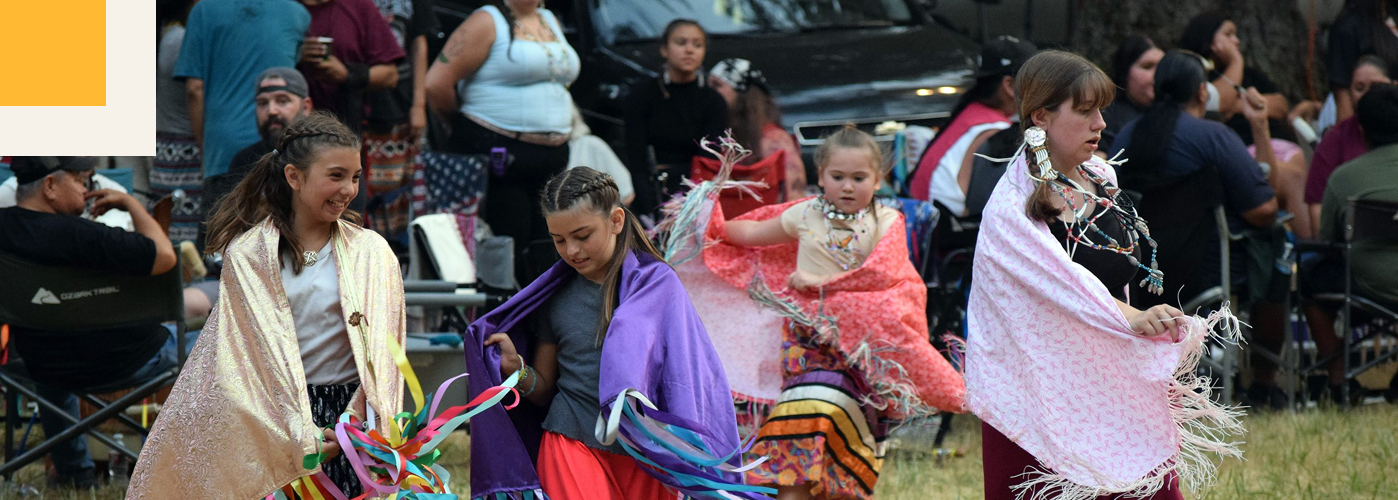
History
The Cow Creek Umpqua people, traditionally known as the Nahánkʰuotana, have lived in their Southern Oregon ancestral homelands for generations. They were historically a mobile Tribe, utilizing resources throughout the Umpqua and Rogue River watersheds. The Nahánkʰuotana signed a treaty with the U.S. government in 1853, at the confluence of Council Creek and Cow Creek, just six miles from Canyonville, Oregon. They ceded their lands to the U.S. government, and then hid to avoid being sent away to a reservation. Cow Creek Umpqua families continued to live close to the land to practice their traditional hunting, fishing, and gathering.
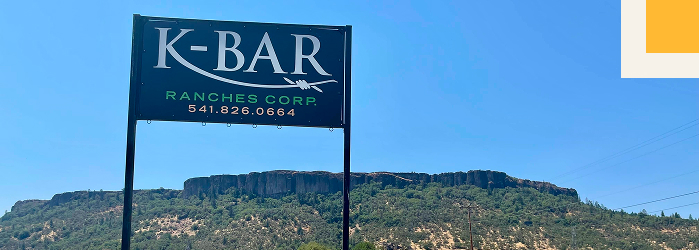
Economic Impact
The Cow Creek Umpqua Tribal Board of Directors and executive leadership team is guided by an economic impact philosophy that supports the well-being of Tribal families, fellow Tribes, and community members. This commitment is reflected in job creation, economic output, and charitable contributions — all of which help drive economic growth and expand opportunities for Oregon residents. For years, the Tribe has been one of the region’s largest employers, with nearly 900 team members across a wide range of businesses. Some, like Seven Feathers Casino Resort in Canyonville, are well-known and highly visible, while many others operate more quietly, all playing a role in creating jobs, strengthening communities, and advancing Oregon’s economic success.
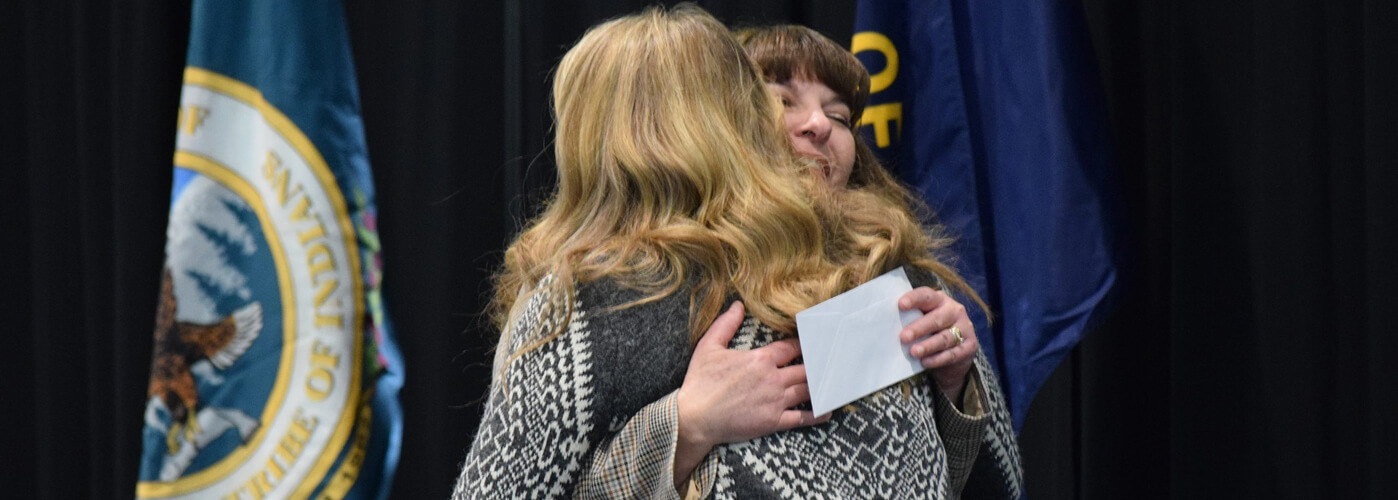
Philanthropy
The Cow Creek Umpqua Indian Foundation has awarded more than $24 million (and counting) to nonprofit organizations throughout Southern Oregon, supporting a wide range of causes including critical healthcare, abuse prevention, education, and basic needs. The Cow Creek Umpqua operate under the philosophy of “a high tide lifts all boats” — meaning that by uplifting surrounding communities, everyone benefits. This belief is part of the Tribe’s Indigenous values and sense of community kinship, guiding them in both good times and bad. Regular grants from revenue generated at Seven Feathers Casino Resort help put dollars back into the community.
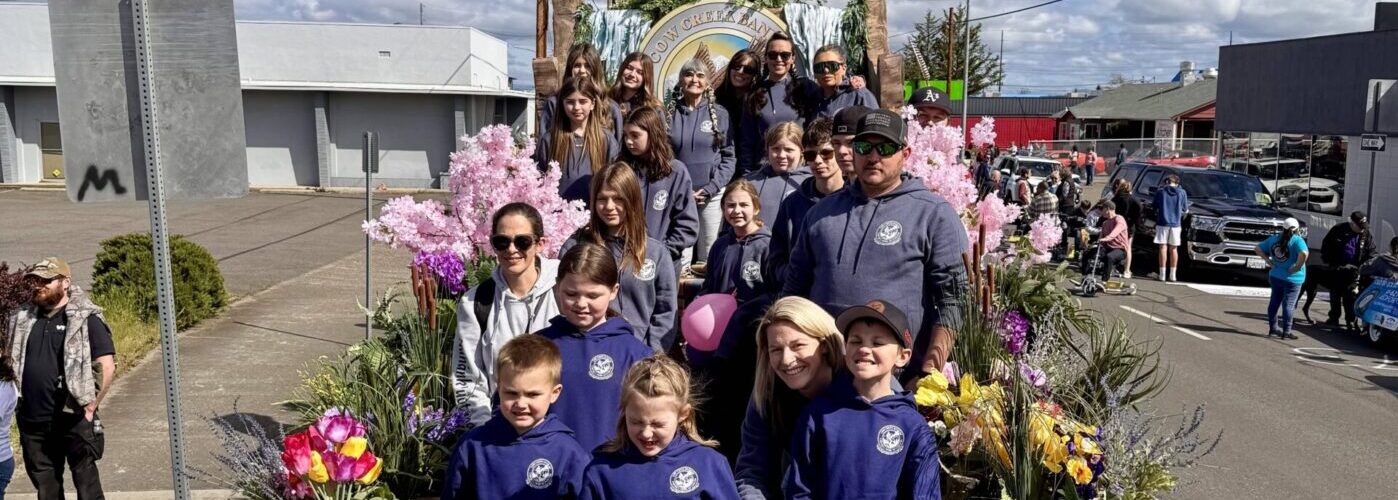
Community Engagement
Community, like philanthropy, is a core part of the Cow Creek Umpqua Tribe’s work throughout Southern Oregon. In addition to foundation grants, the Tribe funds organizations through sponsorships and program support for community schools, fire departments, improvement programs, youth organizations, local colleges and universities, service centers, and more. Tribal leaders believe that everyone deserves a pathway to success and self-reliance.
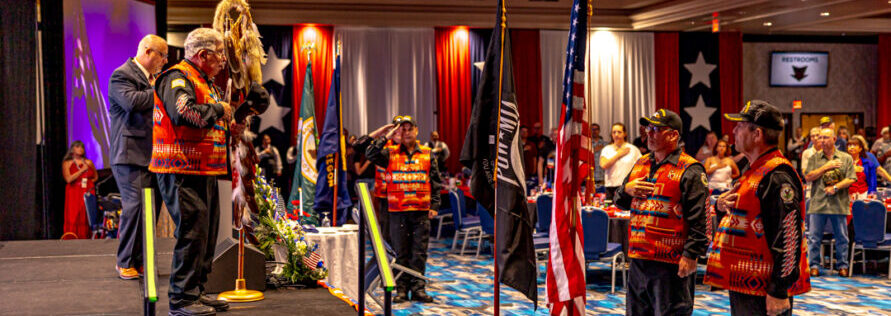
Support for Local Services
The Cow Creek Umpqua Tribe’s economic activities and tax contributions indirectly support local services such as schools, roads, and emergency services across Southern Oregon. They work side by side with state and local partners to improve social services, housing, healthcare, and emergency response. The Umpqua Indian Utility Cooperative provides utility services to Tribal properties, helping build infrastructure that benefits their ancestral region.
Bipartisan Opposition to the Coquille's Casino
Sen. Ron Wyden, D-OR
Sen. Jeff Merkley, D-OR
Sen. Alex Padilla, D-CA
Fmr. Senator Dianne Feinstein, D-CA
Rep. Cliff Bentz, R-OR-02
Rep. Suzanne Bonamici, D-OR-01
Rep. Earl Blumenauer, D-OR-03
Rep. Doug LaMalfa, R-CA-01
Rep. Jared Huffman, D-CA-02
Governor Tina Kotek
Fmr. Governor Kate Brown
Fmr. Governor John Kitzhaber
Fmr. Governor Barbara Roberts
Opposition Letters
AUGUST 13, 2024
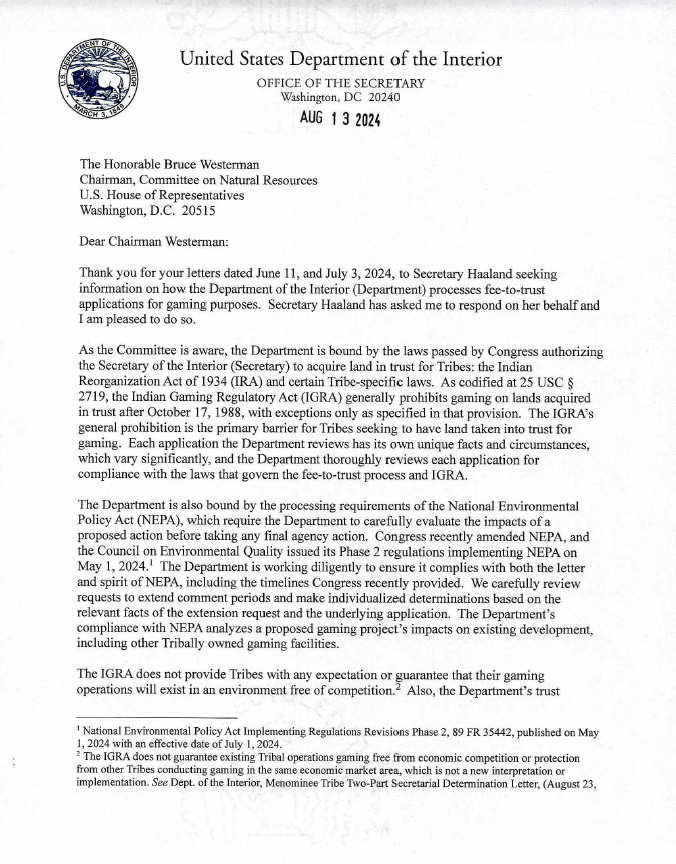
The Department of the Interior's Response to to Chairman Westerman
As codified at 25 USC §2719, the Indian Gaming Regulatory Act (IGRA) generally prohibits gaming on lands acquired in trust after October 17, 1988, with exceptions only as specified in that provision. The IGRA’s general prohibition is the primary barrier for Tribes seeking to have land taken into trust for gaming.
MARCH 4, 2024

Tribal Alliance Opposition Letter to Secretary Haaland
To the extent you have not yet reached the conclusion that the Coquille Project, if approved, would violate the substance and intent of the Indian Gaming Regulatory Act, and would cause irreparable harm to regional Tribal communities, we invite you to travel to our homelands and consult with our elected leaders about how the Coquille Project would impact each of our Tribal nations and peoples.
JAN. 16, 2024

Opposition Letter from Representatives Blumenauer, Huffman, Salinas to Secretary Haaland
We write today to urge you to reject the Coquille Indian Tribe’s application to have land taken into trust under the restored lands exception to the Indian Gaming Regulatory Act (IGRA), for the development of a new Class II casino in Medford, Oregon
DEC. 20, 2023

Opposition Letter from Senator Butler to Secretary Haaland
I write today to urge you to decline the Coquille Indian Tribe’s (Coquille) application to have land taken into trust under the restored lands exemption for gaming to open a second casino…